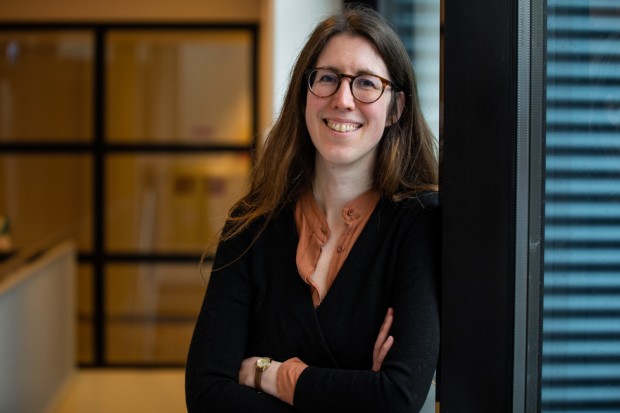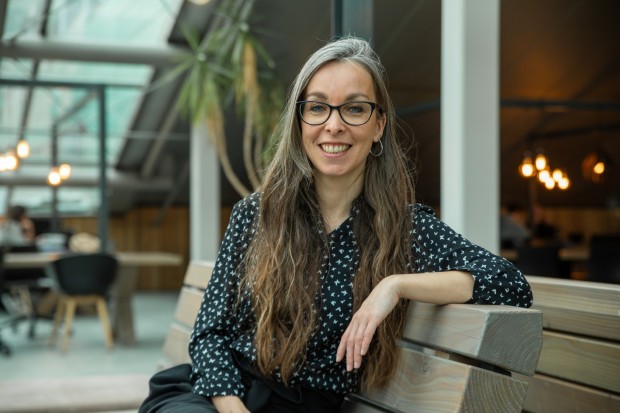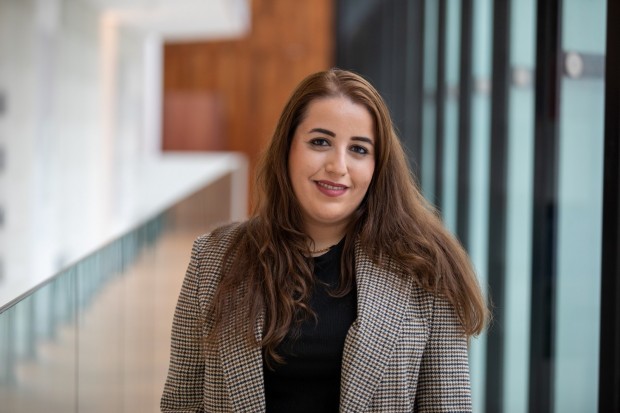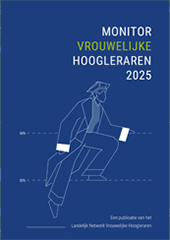20 Apr 2022
L'Oréal Unesco For Women in Science prizes 2022 awarded
L'Oréal Unesco For Women in Science prizes 2022 awardedTwo exceptional women scientists in the field of Life Sciences received a research grant of EUR 25,000 on April 21, 2022, giving them the opportunity to spend several months working on their research at the prestigious Netherlands Institute for Advanced Study (NIAS-KNAW) in Amsterdam. It is the 10th time that these grants have been awarded. In addition, the three winners of the Rising Talent prizes were announced. The festive presentation took place in the Hodshon House of the Royal Holland Society of Sciences and Humanities (KHMW) in Haarlem and was moderated by Fadoua Alaoui.
The laureates of the For Women In Science Fellowships
Betty Tijms – Alzheimer Center | Amsterdam UMC
Dr. Betty Tijms is a psychologist, neuro-informatician and associate professor at the VUmc Alzheimer Center in Amsterdam. Tijms conducts research into the very earliest changes in the brain in the development of Alzheimer's disease. 1 in 7 people develop this brain disease and at the moment there is no medicine that can slow down or cure the disease. This is due to major differences in the underlying causes of Alzheimer's disease. Tijms recently discovered three different molecular Alzheimer's subtypes. Based on the assumption that each subtype has its own specific treatment and that each patient therefore requires a tailor-made treatment, she is now trying to map out the different subtypes and the underlying causes. In this way, Tijms hopes to contribute to accelerating the discovery of medication and treatments for Alzheimer's disease. She will spend her time at the NIAS-KNAW on reflection on next career steps, data analysis, writing several papers and organizing an interdisciplinary workshop.
Watch Betty Tijms' introductory video here.

Marjon de Vos – University of Groningen
Dr. ir. Marjon de Vos is a microbiologist and assistant professor of Microbiology at the Groningen Institute for Evolutionary Life Sciences of the University of Groningen. Her research focuses on the bacteria that cause urinary tract infections, focusing on the interactions between these bacteria influencing the evolution of antibiotic resistance. She also studies the bacteria that live in the bladders of healthy people. She wants to understand how bacterial interactions influence evolution. Because, she says, if we know how certain bacteria influence the growth of other bacteria, we can potentially direct evolution. Marjon will use her time at the NIAS-KNAW to think about and reflect on new research lines and projects, she will also write papers and organize a interdisciplinary workshop, all in the inspiring environment of the NIAS-KNAW, free from other academic tasks.
Watch the introductory video of Marjon de Vos here.
The Rising Talent Awards
The winners of the Rising Talent Prize 2022 are: Linda Al-Hassany, Sanne van Neerven and Nga Phung. Their grants are for research related activities. Honorable mentions went to Rhythm Shukla and Carmem Maia Gilardoni.

Linda Al-Hassany
The first prize winner of the FWIS Rising Talent Award 2022, Linda Al-Hassany, is a PhD student at Erasmus MC in neurovascular medicine. She conducts research into pharmacological and cardiovascular aspects of migraine; Linda will receive € 3,500 plus a nomination for the international Rising Talents program of 'For Women in Science'.
Watch Linda Al-Hassany's introductory video here.
Sanne van Neerven
The winner of the second prize is Sanne van Neerven, PhD student at Amsterdam UMC, where she conducts research into colorectal cancer and stem cell competition. Her focus: the intestinal stem cells that are located in the gut and can be the cause of the development of colon cancer. She will receive € 2,000.
Nga Phung
The third prize worth €1,000 goes to Nga Phung, postdoc at Eindhoven University of Technology. Discipline: Design and engineering material for solar energy. Her research focuses on the development of cost-effective and efficient solar cells: specific 'tandem solar cells' (consisting of perovskite and silicon) that generate higher conversion efficiencies than the efficiencies of solar cells consisting only of perovskite or silicon.
Information about the prizes, the jury and the winners: Brochure FWIS 2022.
During the award ceremony, Minister of Education, Culture and Science (OCW), Robbert Dijkgraaf, congratulated the For Women in Science laureates in a special video message. Watch the video here.
Ten years of FWIS in the Netherlands
In 2012, L'Oréal Nederland and the Dutch Unesco Commission introduced the national For Women in Science fellowship program in collaboration with the Netherlands Institute for Advanced Study (NIAS-KNAW, part of the Royal Netherlands Academy of Arts and Sciences) and the Dutch Network of Women Professors (LNVH). Now, ten years later, this initiative is still proving its value. Under the motto 'The world needs science, science needs women', the FWIS program promotes the scientific career of women, and by doing so, aims to increase the number of female professors.
The partners
L'Oreal
The L'Oréal Group has more than 100 years of experience in the beauty industry. Research and Innovation, and a dedicated research team of 4,000 people, are at the heart of L'Oréal's strategy. They work to meet all beauty needs around the world and aim to reach a billion new consumers in the coming years. L'Oréal's 2020 CSR strategy 'Sharing Beauty with All' sets ambitious targets for sustainable development in the Group's value chain.
Unesco, the Dutch Unesco Commission
UNESCO is the organization within the United Nations that uses education, science, culture and communication to promote peace and security in the world. Since its foundation in 1945, UNESCO has aimed to promote science in the interests of sustainable development and peace. The organization also works to eliminate all forms of discrimination and promote gender equality, especially in scientific research. The Dutch UNESCO Commission is the link between the worldwide community united in UNESCO, the Dutch professional field and the Dutch government.
LNVH
LNVH aims to promote and sustain equal representation of women in academia, works towards the betterment of the position of women of all backgrounds and pushes for an inclusive and safe academic community in which equal pay is the norm. The LNVH works towards this goal by, among other things, knowledge development, capacity building, advocacy and policy making.
NIAS-KNAW
The Netherlands Institute for Advanced Study in the Humanities and Social Sciences (NIAS-KNAW) annually selects approximately fifty researchers from the Netherlands and abroad for a residential fellowship. NIAS offers space for reflection and interaction and thus stimulates scientific innovation. NIAS wants to connect scientific disciplines, encourage collaboration, facilitate new research directions and strengthen the links between art and science. NIAS was founded in 1970 and has been an institute of the Royal Netherlands Academy of Arts and Sciences since 1988. As an independent Institute for Advanced Study, NIAS is a member of two international networks, including with sister institutes in Berlin, Uppsala, Princeton and Harvard.
KHMW
The Royal Holland Society of Sciences and Humanities is the oldest ‘Learned Society’ in the Netherlands. It was founded in 1752 under the name Hollandsche Maatschappij der Wetenschappen with the aim to promote science in the widest possible sense. Ever since its establishment, the KHMW has been involved in promoting science and building bridges between academia and society.


